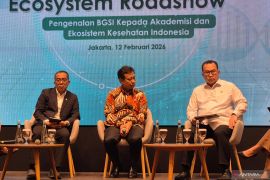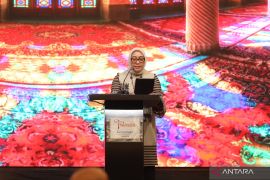HO CHI MINH CITY, Sept. 22, 2011 (ANTARA/PRNewswire-Asia-AsiaNet) --
With a strong economic growth, the ASEAN market is catching the attention of economists amid the global economic downturn. For multinationals already with a footprint in the market, how to establish a leadership and achieve smooth localization in the fast-growing regional market will be a key focus in their expansion.
'Newcomer' multinationals are striving for localization in the region in a move to reduce costs and gain market share.
Taking Chinese home appliance maker Midea as an example, the company had to dispatch marketing employees to Vietnam when it entered the Vietnamese market, since it was hard to find experienced and skilled talents in the local market within a short time. As a result, a team of professional marketing employees with deep understanding of local market was formed over time.
The local marketing professionals at Midea are gradually becoming key contributors to the company's market strategies for the ASEAN market. Midea has already achieved localization of its product planning, and marketing strategies concerning channels and brands are made by the team consisting of mostly local talents.
The product and marketing policies catering to local needs better are one of the key drivers of Midea's rapid development in the ASEAN market. It is reported that Midea is preparing for the construction of its third manufacturing base in Vietnam.
The local marketing employees, having been greatly impacted by Midea's corporate culture, not only have strong international elements, but are also recognized for their loyalty. Mr. Ruan, a marketing employee in Midea's ASEAN business, has refused an opportunity to take up a senior marketing position at a local home appliance brand based on three factors: Midea has a more robust incentive mechanism; it has clear and transparent promotion channels, as Midea will provide more personal development opportunities as it continues its growth; and his wife is Chinese and at the same company.
Wang Qingbo, president of the Ho Chi Minh Chamber of the Chinese Chamber of Commerce, said that Midea provides 5,000 jobs directly or indirectly for the local industry ecosystem, and also develops a team of local marketing talents, which is gradually been led by local employees. The multinationals like Midea are influencing their local employees with their robust and vigorous corporate cultures.
The case of Mr. Ruan demonstrates that the new generation of Vietnamese youth is growing in and benefiting from the trend of globalization, they marry a Chinese wife, work at a multinational, see a US movie, drive Japanese cars and use Chinese electrical equipment. Accordingly, multinationals are trying their best to localize deep into each aspect, from various production processes to talent development, in a move to be part of the local community. A perfect blend of Internationalization and localization is presented here.
SOURCE Midea
Editor: PR Wire
Copyright © ANTARA 2011











